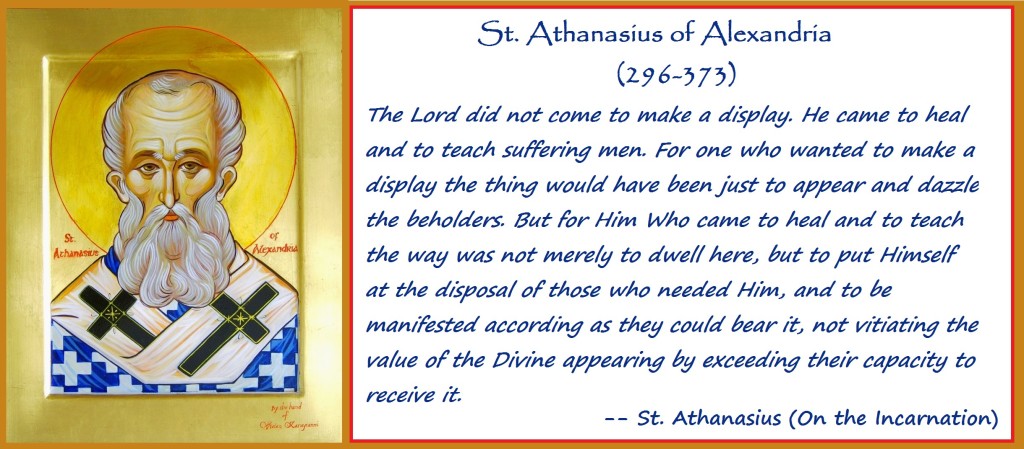 St. Athanasius -Image Courtesy: Pellham Plastics
St. Athanasius -Image Courtesy: Pellham Plastics
(Franciscan Media) Born into a Christian family in Egypt Alexandria and provided a classical education, Athanasius became Secy to Alexander the Bishop of Egypt Alexandria, an outspoken critic of a new movement growing in the East–the heresy of Arianism.
Athanasius entered the Priesthood and eventually named a Bishop himself and becoming known as the ‘Champion of Orthodoxy’ according to EWTN his strength of ascetical writings among which was of the ‘Life of Saint Anthony’ (Feast Day 17 January) earned him the title of Doctor of the Church.
When Athanasius accepted his new position as Bishop of Alexandria, which he served for 46 years according to SQPN he continued to fight against the heresy of Arianism, which spilled over from theology to politics, resulting in Bishop Athanasius being exiled 5 different times for his defense of the doctrine of Jesus Christ’s divinity.
Following the death of Constantine in 337 his son restored Athanasius as Bishop, this lasted but for only a year however as he was deposed again by a group of Arian Bishops. — Athanasius took his case to Rome which Pope Julius I called a synod to review the case and other related matters.
While the theological controversies which marked this period were complex writes EWTN they were an important milestone in the history of the Church which Bishop Athanasius rendered an outstanding service. As Cardinal Newman said, he stands as “a principal instrument after the Apostles by which the sacred truths of Christianity have been conveyed and secured to the world.”
In 2007 Pope Emeritus Benedict XVI said that “Athanasius was undoubtedly one of the most important and revered early Church Fathers but this Great Saint was above all the impassioned theologian of the Incarnation of the Logos, the Word of God who as a Prologue of the fourth Gospel says–“became flesh and dwelt among us.” —John 1:14
“We have many causes which to be grateful to St. Athanasius, his life like that of St. Anthony (Feast Day 17 January) and of countless other Saints shows us that ‘those who draw near to God do not withdraw from men but rather become truly very close to them.’ (Deus Canitas Est, n.42)
Full address here of Saint Athanasius by Pope Emeritus Benedict XVI
Tweet